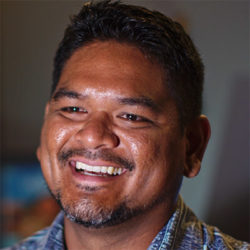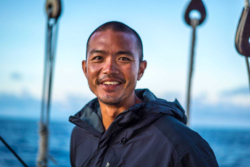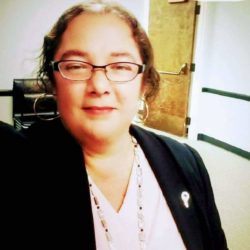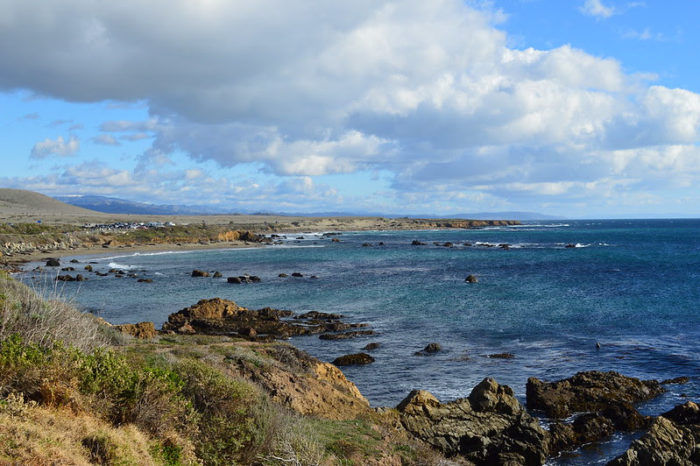Virtual discussion
Blue Beacon Series: Embracing Collaborative Conservation in Future Sanctuaries
Embracing Collaborative Conservation in Future Sanctuaries
Indigenous knowledge and wisdom strengthens our understanding of the planet and improves decision-making. National and global discussions often fail to consider this knowledge and wisdom. Indigenous and traditional communities need allies and funders who support their efforts to develop their own organized systems that increase their presence while developing the capacity to respond to the needs of Western science.
National marine sanctuaries can be models for co-developing marine protected areas and for collaborative conservation in marine management. As the Biden Administration’s recently released America the Beautiful Report acknowledges, “the most effective and enduring conservation strategies are those that reflect the priorities, needs, and perspectives of the families and communities that know, live, work, and care for the lands and waters.”
We invite you to join the National Marine Sanctuary Foundation as we learn directly from indigenous leaders engaged in collaborative management at existing or proposed national marine sanctuaries.
Join us on September 21 at 7 PM EST on Facebook Live (alternate stream will be embedded on this page.)
About our participants
 Kalani Quiocho, Cultural Resources Coordinator, Pacific Islands Region, NOAA Office of National Marine Sanctuaries
Kalani Quiocho, Cultural Resources Coordinator, Pacific Islands Region, NOAA Office of National Marine Sanctuaries
Kalani was born and raised in Hilo, Hawaiʻi. For over five years, he previously served as the Native Hawaiian Program Specialist for Papahānaumokuākea Marine National Monument (PMNM) and World Heritage Site. His work focused on including Hawaiian perspectives and traditions within management such as co-developing the Mai Ka Pō Mai Native Hawaiian Guidance Document for the Management of Papahānaumokuākea, which took over ten years to complete in coordination with PMNM co-managing agencies and the Native Hawaiian community. Kalani has served as a cultural advisor and liaison for PMNM and has supported relations with local, national, and international partners, including the Office of Hawaiian Affairs. Kalani has an academic background in Hawaiian studies, Hawaiian language, marine science, and he is currently pursuing his Ph.D. at the University of Hawaiʻi at Mānoa in the Department of Natural Resources and Environmental Management. His research focuses on understanding Indigenous co-managed protected areas through integrated analysis of natural resources and environmental management policy and program implementation and evaluation. He currently serves as the Cultural Resources Coordinator for NOAA’s Office of National Marine Sanctuaries overseeing research, education, policy, and Indigenous and local community engagement for cultural heritage management within the Pacific Islands region for the National Marine Sanctuary of American Samoa, the Hawaiian Islands Humpback Whale National Marine Sanctuary, and Papahānaumokuākea Marine National Monument.
 Brad Kaʻaleleo Wong, Kūkulu Papahānaumokuākea Program Specialist, Office of Hawaiian Affairs
Brad Kaʻaleleo Wong, Kūkulu Papahānaumokuākea Program Specialist, Office of Hawaiian Affairs
Brad Kaʻaleleo Wong is from Kailua, Koʻolaupoko, Oʻahu. He is a graduate of Kamehameha Schools and has a Bachelors of Science in Marine Biology from California State University at Long Beach. Professionally he is currently the Kūkulu Papahānaumokuākea Program Specialist at the Office of Hawaiian Affairs. His work involves fulfilling OHA’s role in the Papahānaumokuākea Marine National Monument as well as other marine initiatives while advocating for Native Hawaiians and the inclusion of Hawaiian perspectives and traditions within management. His personal life also takes him into the marine environment as an avid paddler, fisherman, and surfer, as well as a sailor, captain, and training navigator on the Polynesian voyaging canoes Hōkūleʻa and Hikianalia. Brad is also currently the President of Kailua Canoe Club leading the community organization in its paddling activities and works to ensure that club members gain a sense of kuleana to Kailua through its paddling activities, mālama ʻāina, and an understanding of Kailua’s rich cultural traditions.
 Violet Sage Walker, Vice Chairwoman, Northern Chumash Tribal Council
Violet Sage Walker, Vice Chairwoman, Northern Chumash Tribal Council
Violet Sage Walker is the vice chairwoman of the Northern Chumash Tribal Council and the spokesperson for the proposed Chumash Heritage National Marine Sanctuary. A descendant of Avila Beach and San Luis Obispo County, California, Violet campaigns tirelessly for the proposed 140-mile Chumash National Marine Sanctuary to regain her community’s fundamental rights. She is a 7th generation beekeeper, and the last Chumash born in Avila Beach. She is a graduate of CSUB in pre-law and Political Science. Her passion for politics and protection of her homeland obligates her to protect where she stands and share her story of her traditional education—an oral history passed down by her elders. Violet, the founder of Native Herbs and Honey Company, and the Chumash Kitchen help educate the community on the importance of protecting sacred places, a glimpse of which can be found in products she makes and classes she teaches.
More Resources

Photo by: Blake Carroll
Official Papahānaumokuāea Marine National Monument (PMNM) website
Mai Ka Pō Mai – Native Hawaiian guidance document for the management of PMNM
Chumash Heritage National Marine Sanctuary website
St. George Unangan Heritage National Marine Sanctuary website
Aguugun Tanaa- Our Sacred Place video series:
About the Blue Beacon Series
The National Marine Sanctuary’s Blue Beacon Series aims to bring to light the ocean and Great Lakes’ biggest challenges through panels, lectures, and film screenings hosted around the country in order to build communities of support for marine protected areas. This series builds on the momentum of Capitol Hill Ocean Week, the nation’s premier conference on ocean and Great Lakes policy issues by bringing these important conversations into locally relevant contexts. For more information, visit marinesanctuary.org/bluebeacon.
Questions?
Please contact Jamie Smith, jamie@marinesanctuary.org or Ben Charo, ben@marinesanctuary.org
